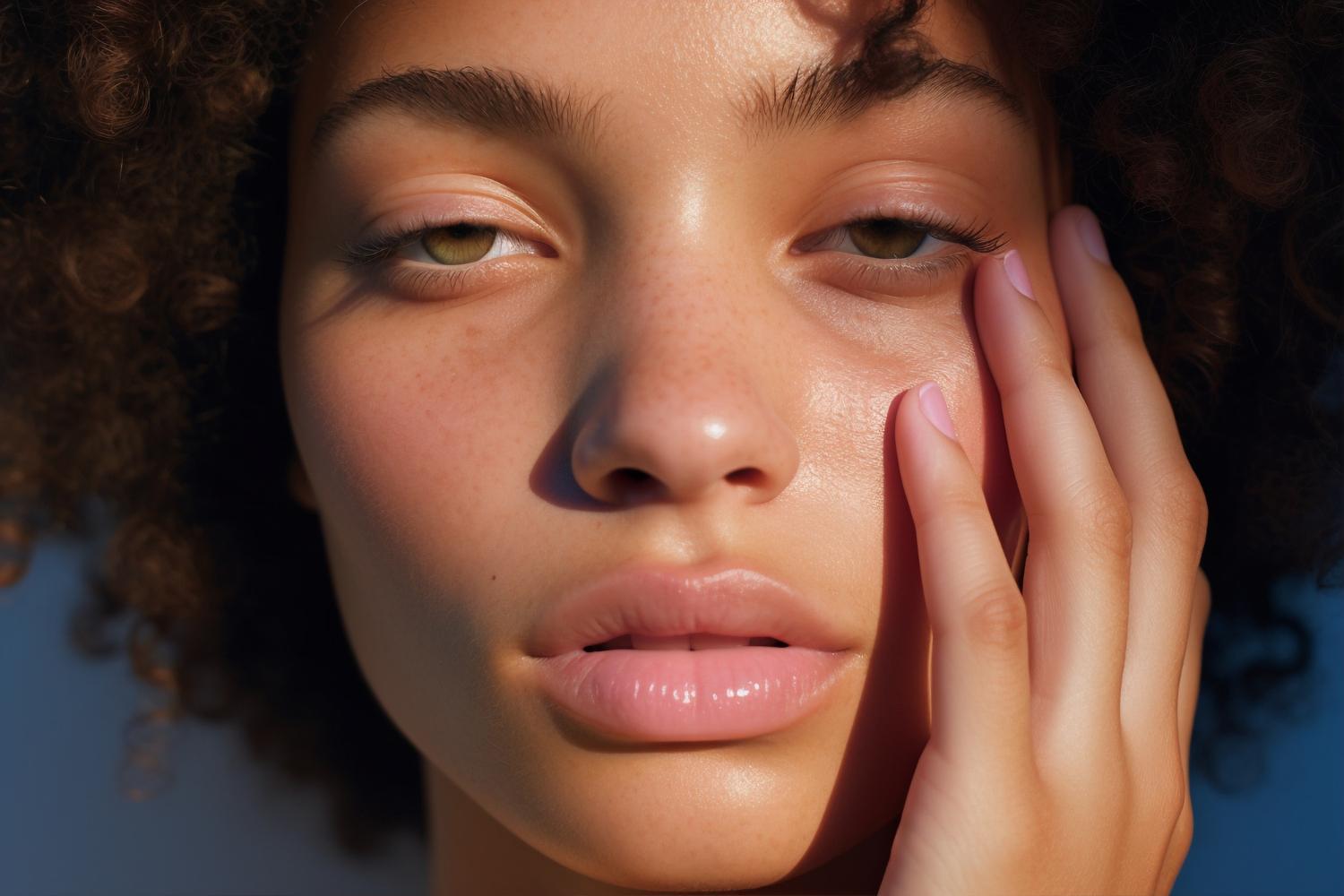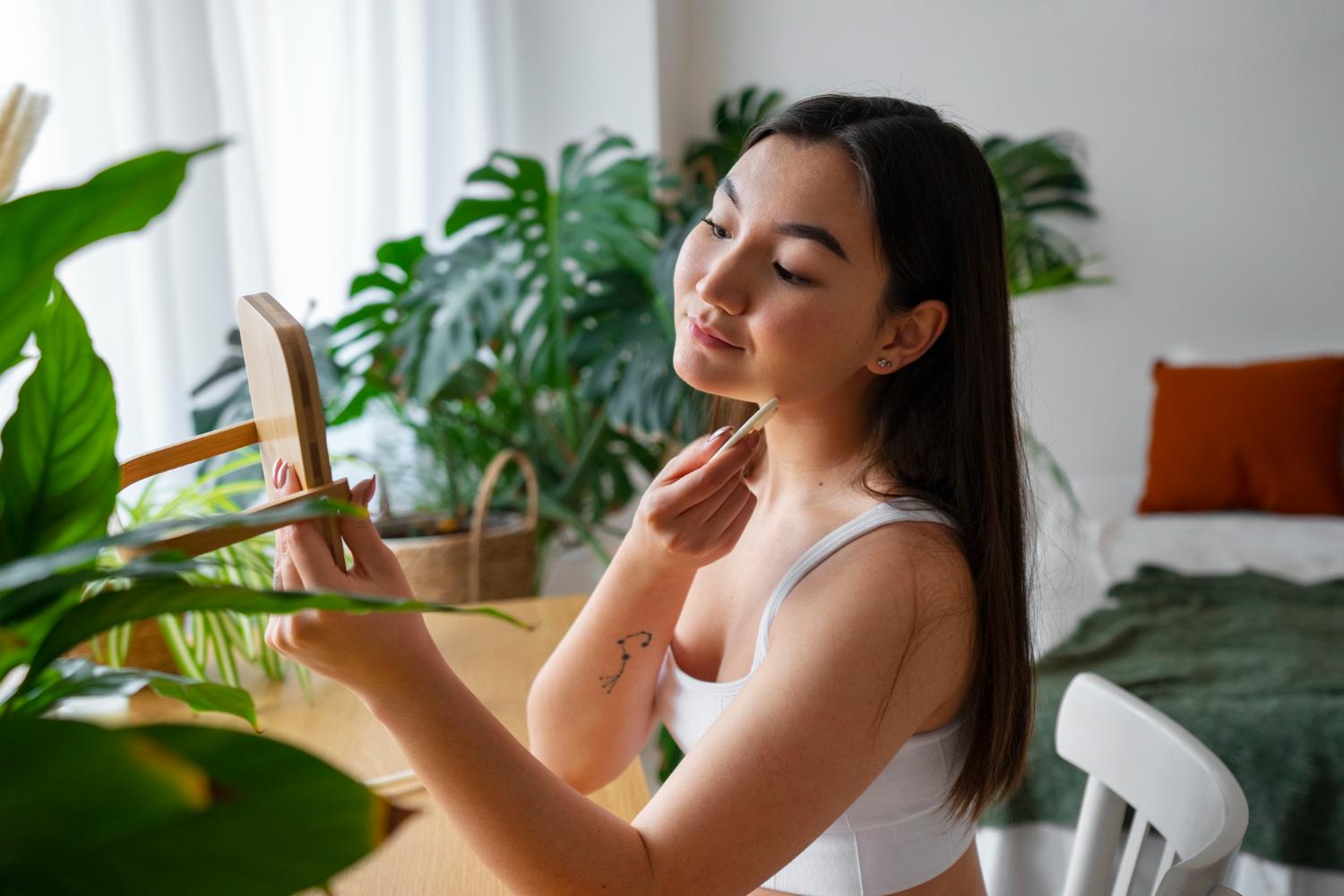Dealing with acne and pimples can be a real hassle, especially when you’re not sure what triggers them or how to prevent them.
Everyone’s skin is unique, which means what works for one person might not work for another.
But some general tips tend to help most people keep their skin clear and healthy.
This article explores twelve straightforward strategies to help prevent acne and pimples.
Whether you’re struggling with occasional breakouts or more persistent acne, these methods can be a good starting point for healthier skin.
Remember, taking care of your skin doesn’t have to be complicated. With a few changes to your daily routine, you can make a big difference in how your skin looks and feels.
1. Keep Your Skin Clean
Starting with a basic yet effective tip—keeping your skin clean is crucial for preventing acne and pimples.
Washing your face twice a day with a gentle cleanser can make a big difference.
When you wash in the morning and before bed, you’re clearing away excess oils and dirt that can clog your pores.
Just be sure not to scrub too hard; a soft touch with lukewarm water is best.
Besides your regular washing routine, it’s a smart idea to rinse your face after sweating.
Sweat can irritate your skin and contribute to breakouts, especially after a workout or on hot days.
A quick splash of water can help remove sweat and oil without stripping your skin of its natural moisture.
2. Mind What Touches Your Face
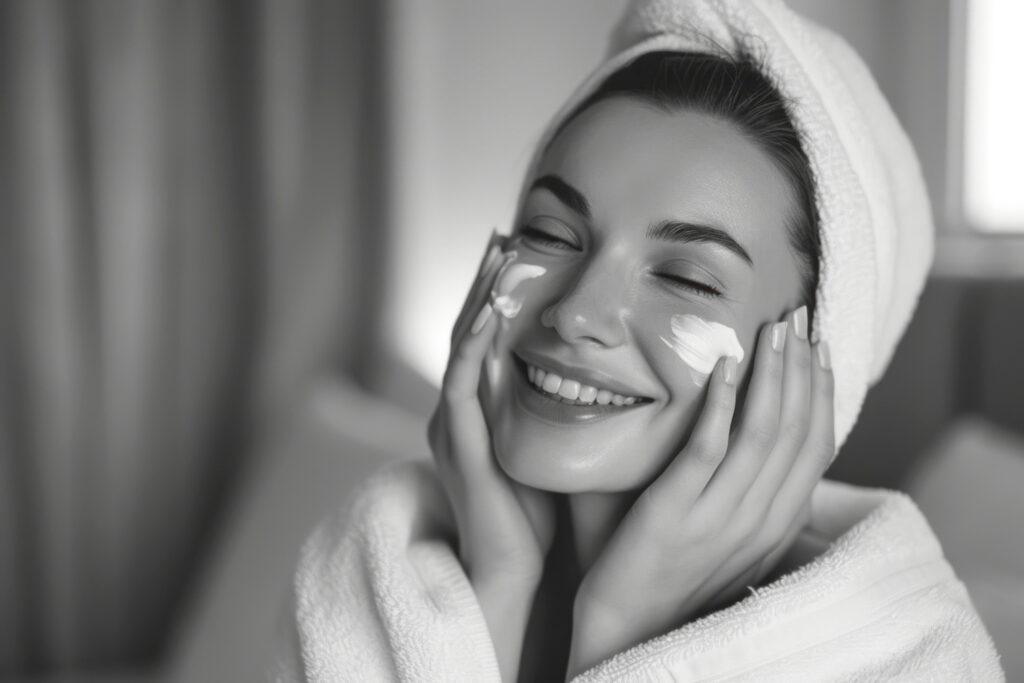
Ever thought about how often your phone touches your face, or how many times you rest your chin in your hands?
These habits can transfer oil and bacteria to your skin, leading to more breakouts.
Keeping your phone clean with disinfectant wipes and avoiding touching your face unnecessarily are good practices.
On the topic of what touches your face, let’s talk about pillowcases. Oils from your hair and skin build up on your pillowcase over time, so changing it at least once a week is a wise move.
Opting for a silk or satin pillowcase can also be gentler on your skin compared to rougher materials like cotton or wool.
3. Watch Your Diet
What you eat can affect your skin, though it might be surprising to some. Foods high in sugar and dairy have been linked to an increase in acne for some people.
Testing out a diet with fewer sugary snacks and maybe less milk or cheese could help you see if there’s a change in your skin’s condition.
Hydration is another key part of skin health. Drinking plenty of water throughout the day helps keep your skin hydrated and clear.
It flushes out toxins and can lead to fewer dry patches and less oiliness, both of which can help prevent acne from forming. Plus, a well-hydrated body feels as good as it looks!
4. Choose Skin-Friendly Products

Selecting the right products for your skincare routine really matters.
Look for labels that say “non-comedogenic” or “oil-free” because these products won’t clog your pores.
Some products can be harsh and irritate your skin, making acne worse. A good rule of thumb is to use gentle moisturizers and avoid heavy makeup that can block your pores.
Remember, simpler is often better when it comes to what you put on your face.
You also want to be careful with hair products. Gels and pomades that get on your skin can contribute to breakouts, especially around your forehead.
Try to keep these products away from your face, and maybe give your hair a rinse before hitting the sack to keep your skin clear of any product residue.
5. Manage Stress
Believe it or not, stress can lead to more pimples.
Stress doesn’t just mess with your mind; it also causes your body to produce hormones like cortisol, which can make your skin oilier.
Finding ways to chill out can actually help your skin stay clear. Whether it’s yoga, reading, or just hanging out with friends, doing things you enjoy can reduce stress and help your skin.
Getting enough sleep is part of managing stress too. Aim for around eight hours a night.
Good sleep helps your body regulate stress better, and it also gives your skin time to heal and rejuvenate overnight.
6. Get Some Sun—But Not Too Much
A little bit of sunlight can be good for your skin. The sun helps your body create vitamin D, which is important for healthy skin.
However, too much sun can damage your skin and even lead to more breakouts.
Always use a sunscreen designed for your face, with at least SPF 30, to protect your skin when you’re outdoors.
Just be mindful of the time you spend in direct sunlight, especially between 10 a.m. and 4 p.m., when the sun’s rays are strongest.
A hat and sunglasses can also help protect your skin from too much sun exposure, keeping it healthy and potentially reducing breakouts.
7. Regularly Change Your Face Towels
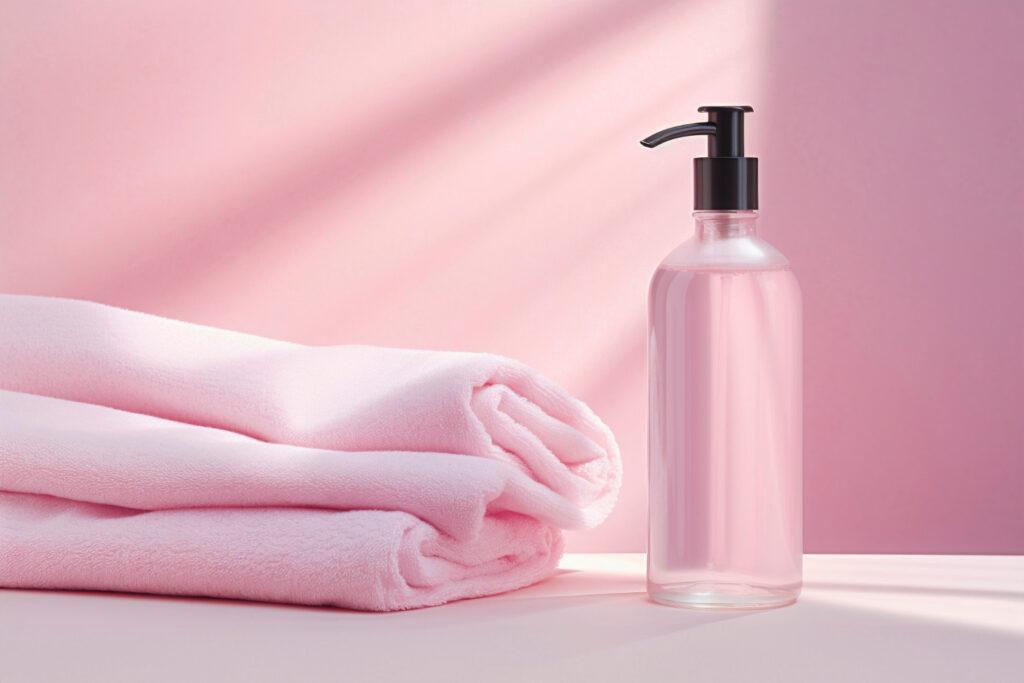
Using the same face towel for too long can spread bacteria, which might lead to pimples.
Make sure you swap out your face towels at least once every two or three days.
Using a fresh towel helps avoid putting old oil and bacteria back on your skin after you’ve just cleaned it.
And here’s a little tip: pat your face dry gently instead of rubbing it. Your skin will thank you by staying smoother and less irritated.
Keeping your face as pampered and cared for as possible goes a long way in preventing acne.
8. Exercise Regularly
Keeping active does wonders for your skin. Exercise boosts blood circulation, which helps keep your skin healthy and vibrant.
Just remember to wash your face after a workout to clear away any sweat and dirt.
That way, you’re helping your pores stay clear and free from irritants that could cause breakouts.
Regular workouts also help balance your hormones, which can reduce acne flare-ups.
So, grab a buddy, hit the gym, or even just go for a brisk walk—it’s good for both your mood and your skin.
Related Articles
How To Look Beautiful Naturally
13 Practical Tips for Healthy Hair Growth
How To Smell Good All Day Long: 10 Best Practices
9. Be Mindful of Laundry Detergents
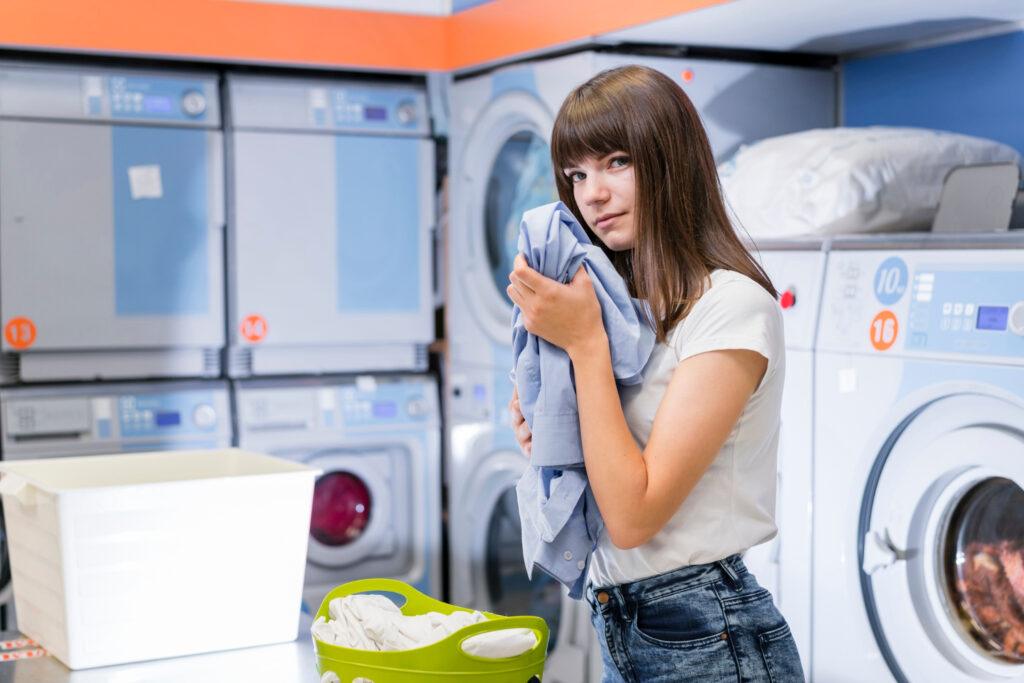
The laundry detergent you choose may affect your skin, especially if you have sensitive skin.
Some detergents contain harsh chemicals that can irritate your skin, leading to breakouts.
Opting for detergents labeled as hypoallergenic or made for sensitive skin can make a big difference. These are gentler and less likely to cause skin issues.
Also, consider how often you wash things that touch your face, like pillowcases and towels.
Keeping these clean and using the right detergent helps keep your skin fresh and irritation-free.
10. Avoid Popping Pimples
You might be tempted to pop a pimple, but try to resist.
Popping pimples can push bacteria deeper into your skin, causing more inflammation and even scarring. Instead, use an over-the-counter acne treatment to help heal pimples.
These usually contain ingredients like benzoyl peroxide or salicylic acid, which can reduce acne without the risks of popping.
Letting pimples heal naturally or with the help of treatments is the best way to ensure your skin stays smooth and clear in the long run.
11. Consider Your Environment
The environment around you can impact your skin. High humidity can increase how much you sweat, leading to clogged pores.
On the flip side, very dry air can dry out your skin, causing it to produce more oil to compensate.
Using a humidifier or dehumidifier depending on your climate can help balance the air around you and keep your skin feeling right.
Also, pollution can deposit tiny particles on your skin that might lead to acne.
Cleansing your face after being in a polluted area can help manage this risk and keep your skin clearer.
12. Review Your Skincare Routine
Sometimes, less is more with skincare. Using too many products can overwhelm your skin and lead to breakouts.
Stick to a simple routine: cleanse, treat, and moisturize. Always give a new product a few weeks to see how your skin reacts before adding another.
Also, make sure the treatments you choose are suitable for your skin type. A product that’s too strong or too mild for your needs might not give you the benefits you’re looking for.
A dermatologist can offer personalized advice to get your routine just right, ensuring your skin gets what it needs to stay clear and healthy.
